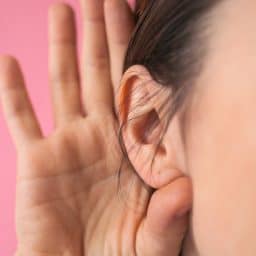Choosing a Hearing Aid
Types of Hearing Aids In addition to comprehensive diagnostic hearing evaluations, Cape Fear Otolaryngology Audiology department provides a full range of hearing aid services. We are proud to offer the most recent advances in hearing aid technology, as well as a wide variety of custom ear mold products. All of our audiologists have a doctorate…
Do I Have Hearing Loss?
How We HearOur ears are divided into three sections: the outer ear, middle ear and inner ear. Each section moves and processes sound in its own way. The outer ear feeds sound through the ear canal to the eardrum, causing it to vibrate. These vibrations affect the three little bones inside the middle ear (malleus,…
What is an Audiologist?
An audiologist has a graduate degree, has completed a clinical internship, has passed a comprehensive national standardized examination and has professional credentials. Most states also have licensure for audiologists. These credentials will help you identify the most qualified person to provide your hearing care services. There are over 10,000 audiologists in the United States who…
What is Unilateral Hearing Loss?

What is Single Sided Deafness? Sometimes referred to as unilateral hearing loss, single sided deafness is a condition in which an individual experiences hearing loss in only one ear but can hear normally out of the other ear. While most patients with a hearing impairment suffer from bilateral (two-sided) hearing loss, SSD affects approximately 60,000…
What is Sudden Hearing Loss?

For most people who experience hearing loss, the condition comes on gradually over a period of years. In rare cases, an abrupt loss of hearing occurs with little or no warning. This condition is known as sudden sensorineural hearing loss (SSHL). What is Sudden Deafness? Sudden deafness is an unexplained and rapid hearing loss that…
What is Noise Induced Hearing Loss?

How Can Sounds Hurt Your Ears? Background sound is a constant in our busy lives. Normally, background noises are at safe levels that do not negatively impact our hearing. But repeated exposure to noise above 85 decibels (dB) can cause noise induced hearing loss. The louder the sound, the less amount of time it takes…